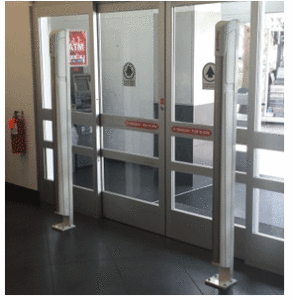Law changes across the United States dealing with shoplifting are always changing. Police departments across states work among businesses to protect them from shoplifting and other illegal activities. Businesses need and demand harsher sentences to deter shoplifting. Businesses dealing with shoplifting are inarguably in accordance with the police force, and want solutions to protect their business and ultimately their bottom line. When training your loss prevention personnel, what is allowed and what is prohibited according to the law, must be addressed with them and with the management of your company. A well trained loss prevention officer can be the difference between a law suit or not.
For more about this topic, follow the links below.
Civil Demand Letters After You Are Busted For Shoplifting
Shoplifters who were caught and released are getting an additional scare in the mail after the event occurs. You may have been caught lifting a pack of gum, or a shirt from a local store. When you were caught you may have just been asked some questions and let go on the spot. However, a letter might come in the mail to scare you after the fact even if you aren’t arrested.
Typically when you are caught shoplifting in Illinois, the store gets their merchandise back undamaged, on the spot. There are no damages incurred by the store, as they are free to sell that t-shirt or pack of gum. However, some law firms are coming after shoplifters in an attempt to gain monetarily for the event. A letter arrives, from a law firm claiming damages and back legal fees they claim a shoplifter owes. This is called a civil demand letter. This letter does not mean any charges have been filed against the shoplifter and the person who receives the letter probably shouldn’t pay. In my opinion, making the payment admits guilt.
Know Your Rights if a Store Detains You for Shoplifting
Being detained by a store or mall security office under suspicion of shoplifting is an experience no one wants to have. Often mall security will try to pressure you into signing a statement admitting your guilt (often threatening to call the police if you don’t) or force you to pay restitution for your offense, but in some cases things can escalate. If you’re detained for shoplifting—regardless of whether you’re innocent or guilty—you have rights. Here’s what you need to know.
The first thing you need to know is what a store has to have or has to see in order to exercise their right to detain you. First, a witness or employee needs to establish probable cause.
Shoplifting offenses are fairly common, but that doesn’t mean shoplifting crimes aren’t taken seriously.
Shoplifting offenses are fairly common, but that doesn’t mean shoplifting crimes aren’t taken seriously. Every state’s penal code includes provisions that apply to shoplifting (usually under the umbrella of theft or larceny statutes), and penalties can be harsh — especially when the dollar value of the merchandise is high, or the offender has a criminal record.
What is Shoplifting?
Shoplifting is typically defined more broadly than the simple removal of merchandise from a store without paying for it. You can also be charged with shoplifting (or retail fraud) for things like:
- altering a price tag
- removing (or even just trying to remove) security tags and other theft-prevention
- “secreting” an item on your person while still in the store (putting merchandise in your pocket or purse), and
- removing an item from its packaging and concealing it in or among other merchandise.


 Wal-Mart has a unique way to cut down on shoplifting
Wal-Mart has a unique way to cut down on shoplifting When do closed circuit television malfunctions occur? I’m sure you can guess, it is always at the point when you need it most. I can’t recall the number of instances when I had a cash shortage I needed to look for and when I attempted to pull video through the DVR the video was already dropped or the camera wasn’t functioning. I remember having to look for an image of a suspect in a shoplifting incident and the picture was too grainy to be of any use due to a dirty camera lens or dome. One slightly embarrassing situation that stands out in my mind involved robberies that were taking place behind our store. I had developed a great working relationship with our local police department and they knew the quality of our camera system. Investigators came to me seeking assistance with outdoor camera footage to try to identify the criminals conducting the robberies. I pulled up video of the date and time in question and much to my chagrin the camera had a great shot of the ground directly underneath it. A power surge had impacted the programming of the pan/tilt/zoom (PTZ) camera and placed it in a default position. I had not noticed the problem in a timely fashion and could not recall how long it was before I did catch the issue. The good news was I was able to re-program the camera and eventually we did provide footage of an incident a little later that led to an arrest.
When do closed circuit television malfunctions occur? I’m sure you can guess, it is always at the point when you need it most. I can’t recall the number of instances when I had a cash shortage I needed to look for and when I attempted to pull video through the DVR the video was already dropped or the camera wasn’t functioning. I remember having to look for an image of a suspect in a shoplifting incident and the picture was too grainy to be of any use due to a dirty camera lens or dome. One slightly embarrassing situation that stands out in my mind involved robberies that were taking place behind our store. I had developed a great working relationship with our local police department and they knew the quality of our camera system. Investigators came to me seeking assistance with outdoor camera footage to try to identify the criminals conducting the robberies. I pulled up video of the date and time in question and much to my chagrin the camera had a great shot of the ground directly underneath it. A power surge had impacted the programming of the pan/tilt/zoom (PTZ) camera and placed it in a default position. I had not noticed the problem in a timely fashion and could not recall how long it was before I did catch the issue. The good news was I was able to re-program the camera and eventually we did provide footage of an incident a little later that led to an arrest.


 The National Association for Shoplifting Prevention
The National Association for Shoplifting Prevention I recently read over an article opining the phrase “sales cures shrink”. While the author touched on both sides of the coin, I found it interesting that in today’s retail climate, anyone would think that you can simply sell your way out of losses. Let’s cut to the chase here; we’re not bringing in 20% increases over last year, hell we’re lucky to come in flat to last year. Online giants like Amazon are eating up market share like never before and if brick and mortar don’t do something fast, sales will continue to slump.
I recently read over an article opining the phrase “sales cures shrink”. While the author touched on both sides of the coin, I found it interesting that in today’s retail climate, anyone would think that you can simply sell your way out of losses. Let’s cut to the chase here; we’re not bringing in 20% increases over last year, hell we’re lucky to come in flat to last year. Online giants like Amazon are eating up market share like never before and if brick and mortar don’t do something fast, sales will continue to slump. I’ve been doing employee theft investigations for years now. Sometimes, they’re a blast. Often, they frustrate me. Not because the person is a thief, but because the loss could be so avoidable if managers would take the time and play offense. Sure, we can run reports and watch video, but all that’s doing is keeping us on the D-Line. You have to play hard and not be afraid to call an audible when needed.
I’ve been doing employee theft investigations for years now. Sometimes, they’re a blast. Often, they frustrate me. Not because the person is a thief, but because the loss could be so avoidable if managers would take the time and play offense. Sure, we can run reports and watch video, but all that’s doing is keeping us on the D-Line. You have to play hard and not be afraid to call an audible when needed.